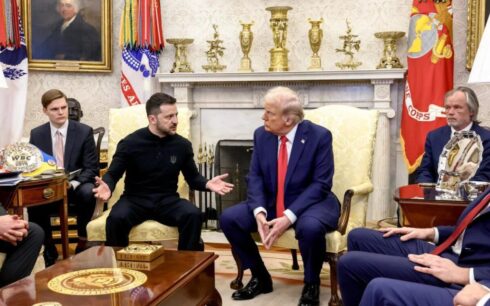WASHINGTON — The Trump administration is set to dramatically downsize the U.S. Agency for International Development, retaining only 294 employees out of a global workforce exceeding 10,000, according to four people familiar with the plan.
The move, part of a broader government reorganization effort, has been led by businessman Elon Musk, a close ally of President Donald Trump. Since taking office on Jan. 20, Trump has sought to overhaul Washington’s primary humanitarian aid agency, which plays a critical role in global health, disaster relief and poverty alleviation.
Among those who will keep their jobs, only 12 staff members will remain in USAID’s Africa Bureau, and just eight will stay in the Asia Bureau, according to the sources.
“This is outrageous,” said J. Brian Atwood, a former USAID administrator who led the agency for more than six years. “Terminating this many staff would effectively dismantle an agency that has helped save tens of millions of lives worldwide.”
The U.S. Department of State did not respond to requests for comment.
The mass terminations come as USAID faces mounting political pressure. Trump and Musk, the world’s richest man, have publicly accused agency staff of corruption—claims that independent fact-checkers have found to be unsubstantiated.
In recent months, dozens of USAID employees have been placed on leave, while hundreds of contractors have been laid off. The resulting disruption has placed critical global programs—including famine prevention, disease control and disaster response—in jeopardy.
On Tuesday, the administration announced it would place all directly hired USAID employees on leave and recall thousands of personnel working overseas.
Secretary of State Marco Rubio has said the administration is working to identify which programs will be exempt from the sweeping stop-work orders. However, sources within the agency warn that major initiatives—including those aimed at preventing epidemics and providing humanitarian relief—are already at risk.
USAID’s implementing partners, which depend on federal funding, are also facing financial distress due to the agency’s suspension of key contracts.
The restructuring effort is part of a long-term push to integrate USAID into the State Department. Rubio, whom Trump has named acting USAID administrator, is leading the transition. However, it remains unclear whether the administration can unilaterally merge the two agencies without congressional approval. USAID was established by law and continues to receive funding through congressional appropriations.
According to the Congressional Research Service, USAID employed more than 10,000 people worldwide as of 2023, with two-thirds of its workforce stationed abroad. The agency managed more than $40 billion in funding that year, delivering aid to 130 countries.
By Thursday, some USAID employees had already begun receiving termination notices, sources said.
A message posted on the agency’s website stated that as of midnight on Friday, Feb. 7, “all USAID direct hire personnel will be placed on administrative leave globally, with the exception of designated personnel responsible for mission-critical functions, core leadership and specially designated programs.”
Essential staff expected to remain on duty were to be notified by 3 p.m. Eastern time Thursday.
USAID’s largest aid recipients in 2023 included Ukraine, Ethiopia, Jordan, the Democratic Republic of Congo, Somalia, Yemen and Afghanistan, according to the CRS report. Many of these nations are heavily reliant on U.S. assistance, raising concerns about the global impact of the agency’s dramatic downsizing.





